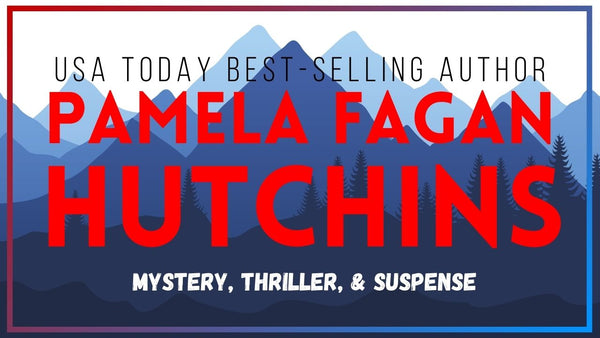While I was living on the U.S. Virgin Island of St. Croix–an island that at the time housed the 2nd largest oil refinery in the Western Hemisphere–a local oral surgeon disappeared when he flew his private plane to Puerto Rico. Speculation about his disappearance was rampant. In the same year, a man died from a gunshot wound while in a vehicle on the road that led to my future driveway–I moved into 16 Estate Annaly one year later. Again, speculation was rampant. Both stuck in my mind until I was later able to weave them into a plot on my fictional St. Marcos. (p.s. the oral surgeon's crashed plane was later found off Vieques; the death of the man in the car was ruled a suicide)
Meanwhile, I was accidentally writing mysteries with an amateur sleuth, because when I started them I hadn't realized they were mysteries **this is not uncommon for writers in their first few books, even though I know it makes it sound like we're idiots**, thus obviating the need for a cop/coroner/soldier/investigator/or-some-such protagonist. I just wrote what I felt was authentic: a woman bombarded by life's issues, forced to be self-sufficient and solve her own problems. I mean, isn't that how it is for you? That's what it's like for me. We live a crazy modern life of conflicting responsibilities and desires, with technology never allowing us to escape them.
In retrospect, I positioned my amateur sleuth to have special knowledge of the law, I wrote her as a karate champion, and I gave her a love interest who could teach her about private investigations. Go, me.
I think of fiction as "life re-imagined." When you daydream, do you re-imagine your life completely, or just try to spice up what you've got? Probably some of both. But for me, it's just little "what ifs," little twists of fate that speed things up and turn up the tension. Did the missing guy in the plane run away with a girlfriend? Was the man in the car shot by drug dealers who staged it as a suicide? Things like that.
So my protagonists, for better or for worse, are ordinary, extraordinary women forced out of their daily comfort zones into roles they are capable of (solving "problems," aka murder mysteries) even though they never planned for them. But the rest of the story beyond the mysteries is just as important, so problems with their love lives, offspring, parents, day jobs, etc. are just left of center stage, ramping up the pressure and giving depth to the characters. Which makes the mysteries character-driven, just shy of being women's fiction.
This topic reminds me of a story about my husband Eric. When he was 40, he took his youngest daughter Liz to audition for some commercials and print ads. She wasn't cast. He didn't audition, but they had his contact information from her, and he got a call–much to Liz's chagrin–and a few weeks later, he was the husband in an ad for a medication for a drug for women. The ad featured a woman with her husband and two children, running on the beach. She was a little older, a little heavier, and a little less attractive than my gorgeous husband, but not much. Just enough that if she was re-imagining her life, her husband would have looked like him, and they would have been on a beach in St. John, with smiles on both of their perfect kids' faces.
Possible, but not probable.
And so it is with my protagonists. You really could live on a tropical island, be sexy, single, and talented, and date incredible men. You don't want or need to go back to school and become a forensic pathologist (ew, yuck, smelly, gross, long hours, bleck). You can imagine using your wits to a higher purpose JUST AS YOU ARE, and starring in the What Doesn't Kill You mystery series.
And so I write about you, dear readers, ordinary, extraordinary women, capable of great things in a life just slightly reimagined. Close your eyes for a moment. Can't you just picture yourself there?
